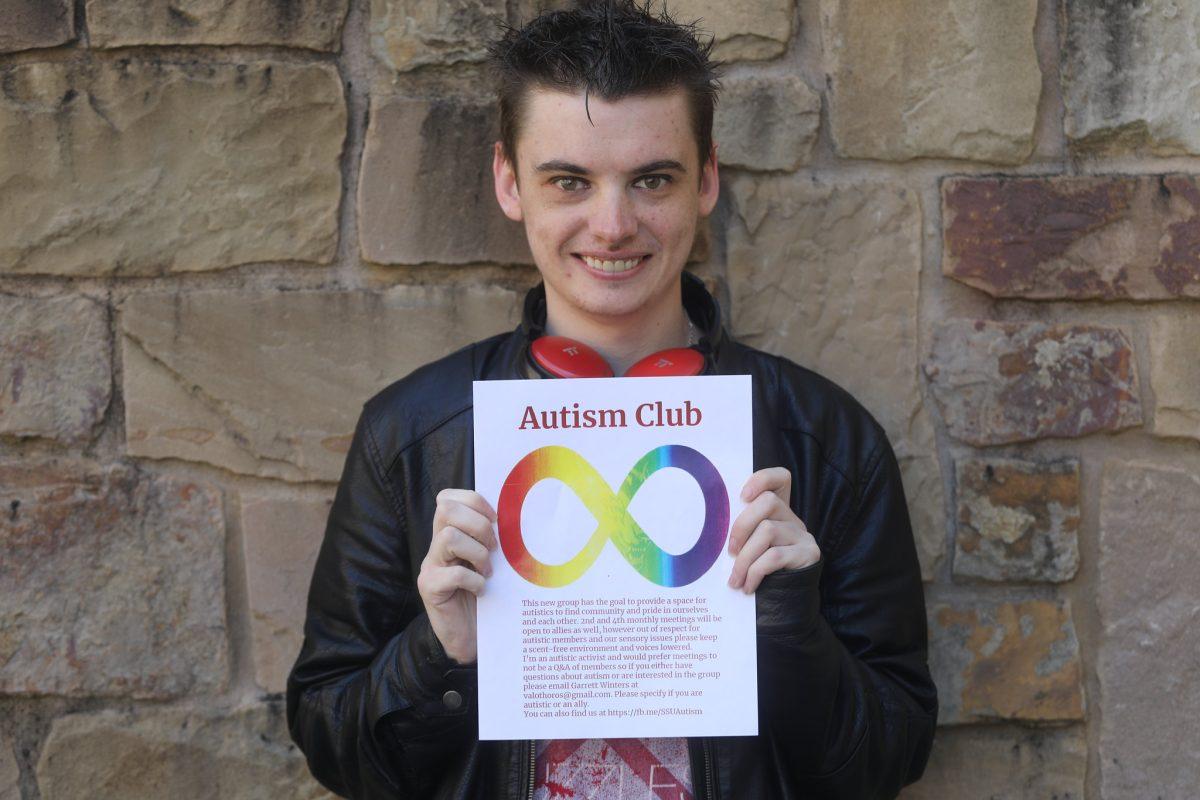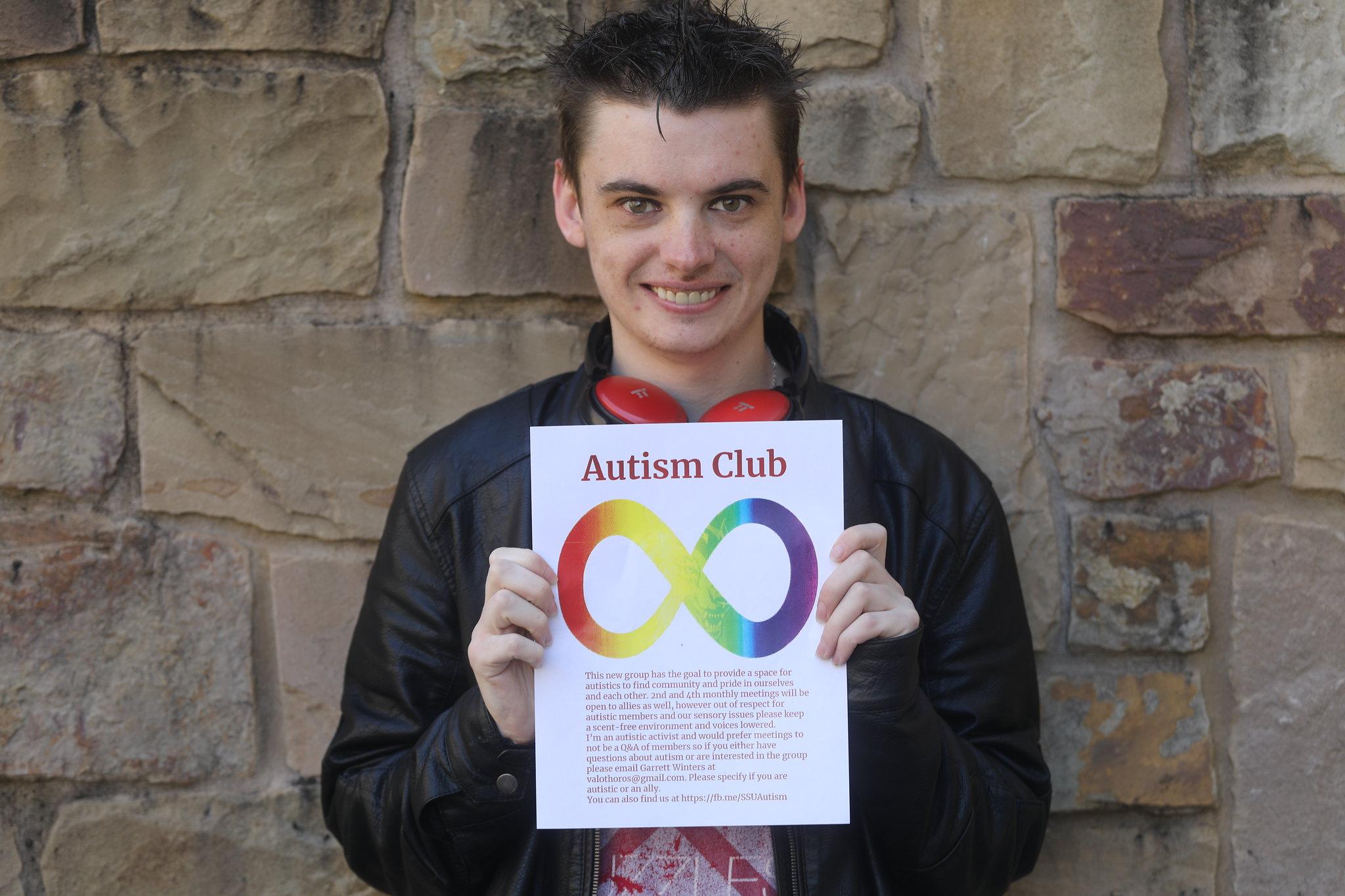Sonoma State University will soon be adding the Autism Club to its list of on-campus groups. English major Garrett Winters is working to get the club set up in order to provide support for students like himself, who are autistic. He also hopes the group will be able to provide information for autism allies (people who are not autistic but who want to learn and support those who are).
Winters, who considers himself an autism activist, attended Anova, a K-12 for autistic children and teens. There he found a supportive community. It is his goal to provide that same type of support for Sonoma State students with autism.
“What really helped me was having a sense of community, both through Anova and online,” Winters said. “Quite often autism leads to isolation from allistic, or not autistic, peers. It can lead to a kind of self-hatred. Having a space with other autistic people allows you to not feel alone.”
Although Winters is setting up the club independently, Sonoma State’s Disability Services for Students is helping to promote it by providing information about the club. Christy Giambastiani, senior disability management advisor, thinks that the club will be able to give students facing the special challenges of autism a way to connect with one another.
Garrett Winters, above, will be leading the club, which will meet once per week, in hopes of spreading awareness and inclusivity for those with autism.
“Some students who identify as having autism spectrum disorder have to navigate the extra challenges of being very sensitive to their environments, having different communication styles, finding social rules confusing at times, and being very focused on their interests and particular ways of thinking and navigating situations,” Giambastiani said. “The club can provide a safe space for students to share their experiences with people who innately understand.”
Winters said that the club will meet weekly, with the first and third meetings being for autistic students only. The second and fourth meetings will be open to anyone who wishes to attend. “I’m hoping that by allowing allies in for two of the meetings a month it will give them a view of autistic issues,” said Winters.
One of the biggest issues Winters hopes to address is communication. He said that people with autism lack the ability to read voice tone and body language. He said that because people often use those nonverbal means of communication to convey irritation or dislike, misunderstandings are common. These simple misunderstandings often lead to loss of relationships, and over time autistic people can feel isolated.
“We don’t really read body language and voice tone very easily, so people will use body language to convey that they’re upset or that they don’t like something you’re doing,” he said. “But we do not pick that up, so we keep doing it… We do a lot of work to accommodate society and follow [social] rules that aren’t natural to us, but when we break them or we don’t know what they are, we end up losing people.”
Winters said that both the school of arts and humanities and the school of science and technology have contacted him to offer support for the Autism Club. The school of science and technology offered him a space to use in Darwin Hall. Further information and news can be found on Facebook under Sonoma State Autism Club (@SSUAutism).
“I couldn’t have imagined this ten years ago,” said Hollis Robbins, dean of arts and humanities at Sonoma State. “I’d love to see faculty, staff, and administrators on the autism spectrum involved as well, particularly faculty members who may not know that their academic and research success—obsession with a topic, painstaking attention to detail—may be an aspect of their brain wiring that they haven’t recognized as neurodiverse.”





![[Both photos courtesy of sonoma.edu]
Ming-Ting Mike Lee stepped in as the new SSU president following Sakakis resignation in July 2022](https://sonomastatestar.com/wp-content/uploads/2024/04/CC4520AB-22A7-41B2-9F6F-2A2D5F76A28C-1200x1200.jpeg)



























